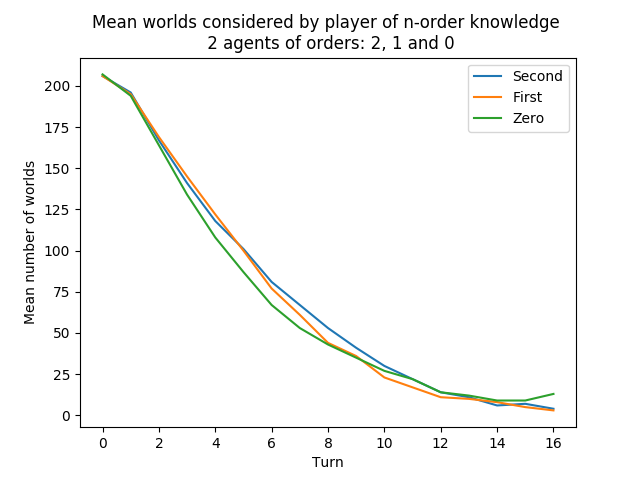Results
Firstly we found that almost all games (>95%) will end with a player making a suggestion that no other player has on their hand and therefore winning the game by default before a player was actually able to deduct the goal deck fully. While this usually does not happen as much with human players, it is a result of the technical limitations of our implementation, where players will only make an accusation when they have ruled out all but one possible card combination in the goal deck.
We ran simulations in four different setups, consisting of the following settings:
1: two agents of order 0 and two agents of order 2. 6 murderers, 6 weapons and 7 rooms.
2: two agents of order 1 and two agents of order 2. 6 murderers, 6 weapons and 7 rooms.
3: two agents of order 0 and 2 two agents of order 2. 6 murderers, 6 weapons and 7 rooms.
4: two agents of order 0, two agents of order 1 and two agents of order 2. 6 murderers, 7 weapons and 8 rooms.
Having run the four simulation setups 25 times, the win rates for each order represented by the agents are shown below. In the left-top plot, we can see that the two agents of order 2 have a combined win percentage of 96% against 4% for the agents of order 0 in their setup. The top-right shows the win percentages of 48% for order 2, 52% for order 1 and 0% for the order 0 agents. The bottom left compares the win rate of the two order 1 agents (100%) versus the two order 0 agents (0%), and the final bottom right plot shows the 52% win rate for the two order 2 agents against the two order 1 agents with 48%.
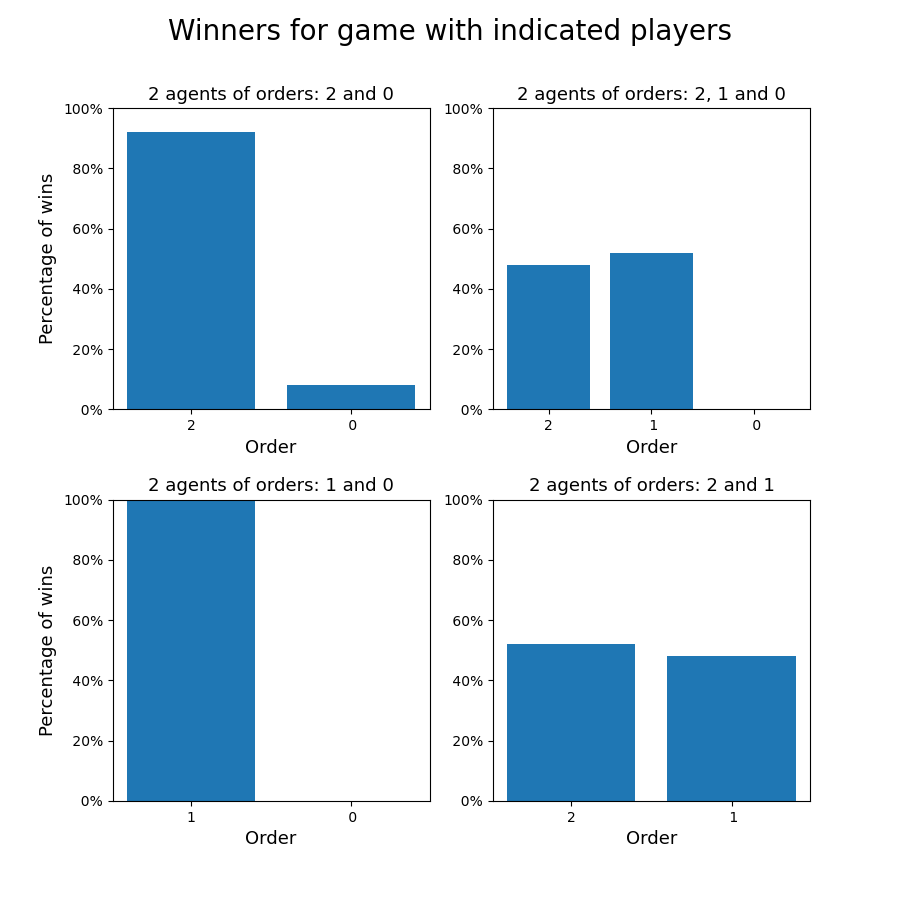
Every agent considers a specific amount of worlds possible for the goal state during each turn. As the agents are provided with more information each turn, the amount of goal states they still deem possible decreases. This decrease in goal states is plotted below for each setup, with the graphs showing the average amount of goal states left for both agents over each run. As described above, since we consider a right suggestion winning, we nearly never reach an average amount of remaining goal states of 1. It can also be seen that the average decrease in possible goal states is roughly equal for agents of all three knowledge orders.
two of order 2 and two of order 0.
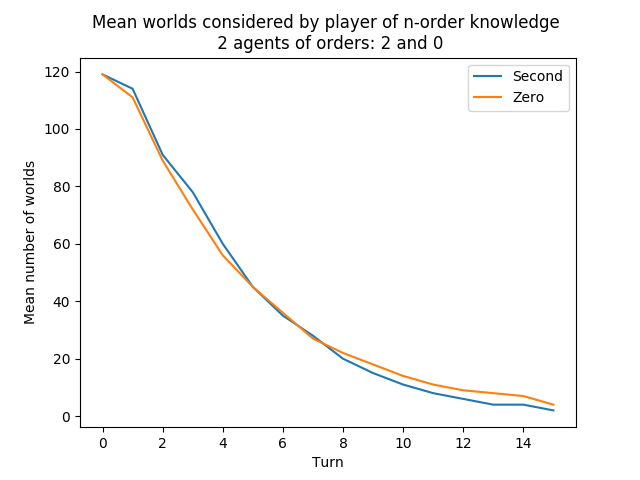
two of order 2 and two of order 1.
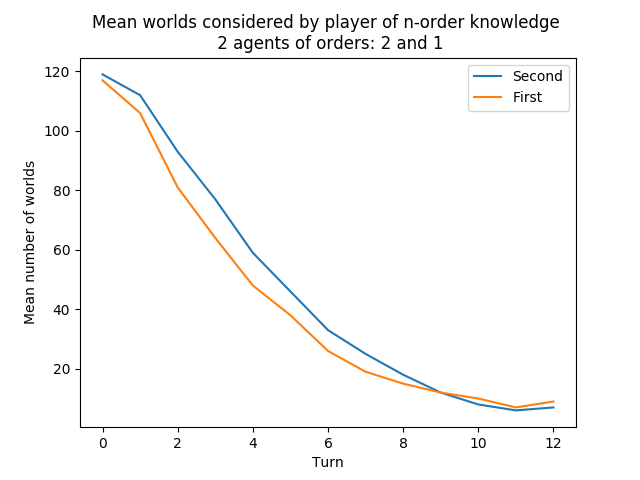
two of order 1 and two of order 0.
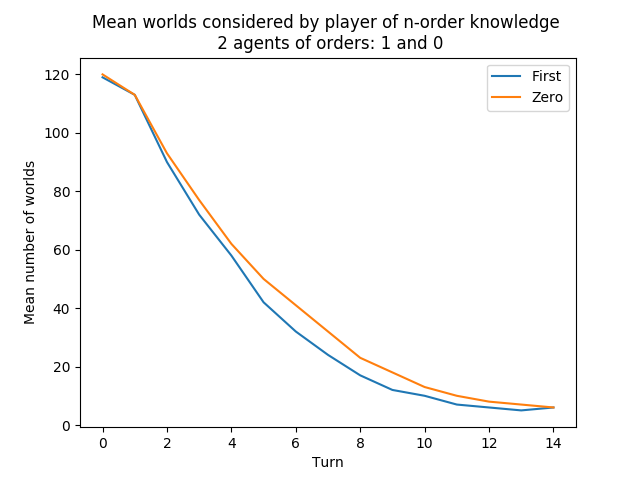
two of order 2, two of order 1 and two of order 0.
